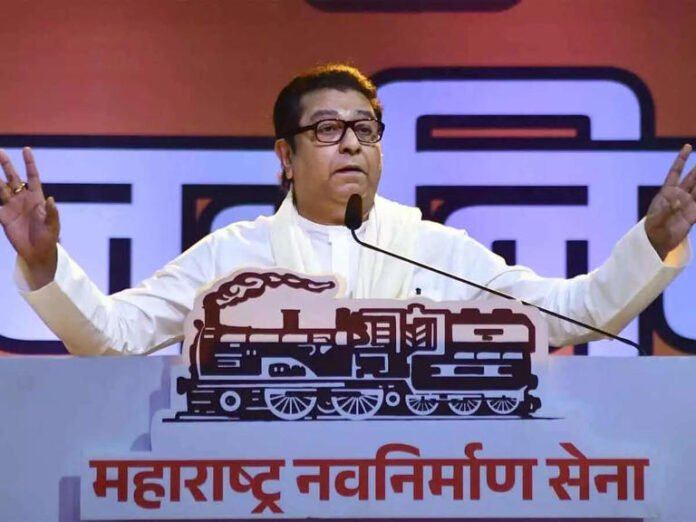A fresh political controversy has erupted in Maharashtra after the state education department announced that Hindi will be made a mandatory third language for students of Classes 1 to 5 across all schools, starting from the academic year 2025-26. While the government claims the move aligns with the National Education Policy (NEP) 2020, the Maharashtra Navnirman Sena (MNS) has vehemently opposed the decision, calling it an imposition on Marathi-speaking students and a direct challenge to regional identity.
According to the new directive, all schools affiliated with various boards — including SSC, CBSE, ICSE, and IB — will have to introduce Hindi as a third language for primary students. Currently, most schools follow a three-language formula where Marathi, English, and either Hindi or another language are taught, depending on the board and student demographics. The proposed change would make Hindi compulsory in the curriculum for Classes 1 through 5, even in private and international schools.
MNS Criticizes “Language Imposition”
Reacting sharply to the move, MNS leader and founder Raj Thackeray accused the Maharashtra government of surrendering to “Hindi dominance” under pressure from the central government. In a strongly worded statement, Thackeray said, “This is Maharashtra, not a Hindi-speaking state. The Marathi language must take precedence in our education system. Forcing Hindi on our children undermines our cultural roots and regional pride.”
The MNS has long advocated for the primacy of Marathi in the state’s administration and education. Party workers have warned of statewide protests if the policy isn’t reconsidered. Several MNS leaders have called for Marathi to remain the compulsory first language, with English as second, and Hindi to be optional — not mandated.
Government Justifies the Move
In defense of the decision, officials from the School Education and Sports Department stated that the policy is in line with NEP 2020, which promotes a multilingual approach to learning, with emphasis on the mother tongue and exposure to other Indian languages. According to state officials, making Hindi mandatory is aimed at enhancing linguistic diversity, improving communication skills, and better integrating students into the national framework.
Education Minister Deepak Kesarkar clarified, “We are not undermining Marathi in any way. Marathi remains the first language in all schools in Maharashtra. Hindi will only be introduced as a third language to ensure that our students are equipped to engage with the wider Indian population.”
Political Reactions and Public Response
The decision has not only triggered protests from MNS but also drawn mixed reactions from other political parties. The Shiv Sena (UBT) and NCP (Sharad Pawar faction) have expressed concern over the centralization of education policies, while the BJP and Eknath Shinde-led Shiv Sena have defended the move as a “national unifying step.”
Parents and educators remain divided. While some urban, English-medium school parents have welcomed the move as practical for their children’s future prospects, others, especially in rural and Marathi-medium schools, worry it may overburden students and dilute focus on their mother tongue.
Many linguistic and cultural organizations have also voiced their concerns, cautioning that introducing multiple compulsory languages at the primary level may overwhelm students and reduce proficiency in any single language. They argue for a more flexible approach where parents and students can choose the third language based on interest or local relevance.
A Question of Identity and Education
The issue has once again brought to the fore the sensitive balance between national integration and regional identity. Maharashtra, a state with a strong linguistic and cultural heritage, has always placed high importance on the Marathi language in public life. The imposition of Hindi, even as a third language, touches a nerve in regional politics, particularly at a time when questions about cultural homogenization are gaining prominence nationwide.
As the new academic year draws closer and the government prepares to implement the language change, opposition from regional parties like MNS is expected to intensify. Whether the policy will proceed as planned or face modification under political pressure remains to be seen.
In the meantime, the language debate in Maharashtra continues to stir public sentiment — raising important questions about the role of language in identity, integration, and education in a diverse nation like India.

